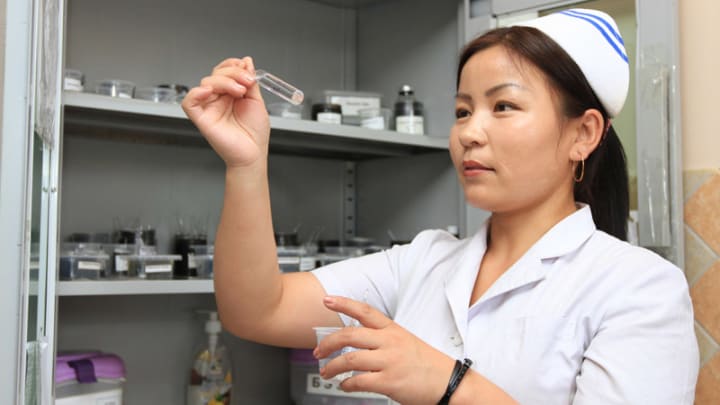
MANILA — Midwives and nurses play an important role in disease promotion, prevention, and treatment and are often a patient’s first entry into care. But across the world, their numbers are far from sufficient, and with few incentives in the face of a demanding workload, filling the shortages are likely to pose a challenge and place constraints in global efforts to reach universal health coverage.
See more related topics:
► Opinion: Invest in midwives to improve global health
► Despite efforts to train health professionals, Malawi's government isn't hiring
► Could unemployed youth solve the health care worker crisis?
In half of the World Health Organization’s member states, there are fewer than three nursing and midwifery personnel per 1000 people. Worse, in 25 percent of WHO’s member countries, the ratio is less than 1 per 1000, according to 2017 data from the Global Health Observatory. While the shortage is anticipated to reduce from 9 million currently to 7.6 million by 2030, improvement in numbers will likely be uneven across regions. In fact, shortages are anticipated to worsen in the African and Eastern Mediterranean regions, if current efforts to train and incentivize the sector don’t improve.
Recognizing these challenges, global health organizations, nurses and leaders, to be joined by the Duchess of Cambridge, are launching a new three-year campaign today, called Nursing Now, aimed at raising the profile of nursing worldwide and to call for more investments in their training and growth. The campaign will be led by the Burdett Trust for Nursing, with support from the International Council of Nurses and WHO.
“The Nursing Now campaign is about supporting nurses to lead, to learn, and to strengthen the profession. We will equip them through training, support, and the development of political
leadership skills to take their rightful place at the table when decisions are being taken about the future shape of health care in their countries,” said Nursing Now co-chair Professor Sheila Tlou in a news release.
Apart from building the necessary health workforce to meet growing health care needs worldwide, the effort is seen to bring job opportunities to women and youth.
In a Twitter chat on Monday, the eve of the launch, global health leaders and professionals weighed in on the subject.
“It’s important to ensure nurses are properly trained and effectively supported throughout their career. Growth opportunities and good pay are key to retaining nurses,” said Sania Nishtar, currently co-chair of WHO’s High Level Commission on Noncommunicable Diseases, in a response to a question on what governments and the wider global health community can do more to support nursing personnel.
Elizabeth Iro, WHO’s chief nurse, meanwhile said: “The appointment of chief nursing officers is critical; investment in #nurses and #midwives should be based on needs of populations.”
She also directed the conversation to WHO’s global strategic directions for nurses and midwives for 2016-2020, which provides a new framework for how WHO can strengthen nursing and midwifery services to help countries achieve UHC.




